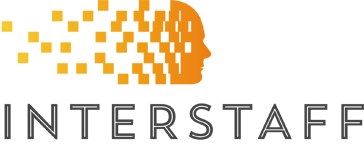
Skilled Employer-Sponsored Regional (Provisional) Visa Subclass 494
Is your business reviewing its options to engage skilled overseas migrants? Or are you a skilled migrant exploring work visa options that allow for future Permanent Residence? Australia’s Subclass 494 Visa program enables businesses operating in regional Australia to sponsor employees for a 5-year visa. This visa also provides a pathway to Permanent Residence through the 191 Visa after three years of regional work.
Compared to the commonly used 186 Visa, which allows for Permanent Residence in all areas of Australia – not just regional, the Subclass 494 Visa to Australia may appeal to employers and skilled migrants because it allows for sponsorship under a broader range of occupations than the 186 Visa. The visa applicant must also commit to remaining in the position for three years after the visa is granted. However, compared to the 186 Visa, the 494 Visa requires skills assessments and State or Territory approval through a ‘Regional Certifying Body,’ which take some time to prepare. The position must also be in a regional area – however, most locations outside Sydney, Melbourne and Brisbane are classed as regional areas for migration purposes. This means cities like Perth are currently considered regional areas – our migration agents can help determine if the 494 Visa may be a suitable option for your needs.
"*" indicates required fields
Can my business sponsor an employee for a 494 Visa to Australia?
The 494 Visa has two streams available – the Employer-Sponsored stream and Labour Agreement stream.
To sponsor under the Labour Agreement Stream, an employer must establish a Labour Agreement with the Australian Government and meet specified nomination requirements.
To sponsor under the Employer-Sponsored stream, which is the most common way to sponsor an employee for a 494 Visa, your business must either be approved as a Standard Business Sponsor or an Accredited Sponsor. This involves a Sponsorship application to the Department of Home Affairs.
A Sponsorship application requires very specific evidence to prove to the Department your business is an ethical and responsible employer. Whether you require a Standard Business Sponsorship, Accredited Sponsorship or if you need to negotiate a Labour Agreement, Interstaff’s registered migration agents can provide advice on how you should prepare your evidence requirements.
After becoming an approved sponsor through Standard Business Sponsorship or Accredited Sponsorship, you must also conduct Labour Market Testing (LMT) to show you are unable to find an Australian Citizen or Permanent Resident with the skills and experience needed for the nominated role (exemption applies in some circumstances). The position must be on the relevant skilled occupation list in order to sponsor the person. You must have a genuine need for the position, and you must offer the nominated applicant at least the annual market salary rate (ASMR) and employment conditions that are equivalent to Australian workers for the position. Each of these claims must be supported by evidence, which our migration agents work with you to provide.
Is my employee eligible to apply?
The visa applicant must be nominated to work in an occupation on the relevant skilled occupation list for the Employer-Sponsored stream or be nominated to work in a specified occupation under the terms of a labour agreement for the Labour Agreement stream. Usually, the visa applicant must be under 45 years of age when the application is made, but exemptions may apply.
The employee also needs to have at least 3 years of relevant work experience in the nominated occupation and have the required skills and qualifications required to perform the tasks of the nominated occupation.
Under the Employer-Sponsored stream, the applicants must have a positive skills assessment unless they are exempt. They also need to achieve at least a Competent level of English.
For the Labour Agreement stream, a skills assessment may be required if it is specified in the labour agreement. The labour agreement negotiated with the Department of Home Affairs will also usually specify the level of English language required by your business’ visa applicants.
Like for many other visas, the Department requires the main applicant and any dependent family members who apply for the visa to meet specific health and character requirements. The applicants may need to have health examinations to prove they meet the health requirement. To prove that the applicants have good character, the Department may also request documents such as police certificates.
Applicants who had a visa cancelled or refused while they were in Australia may be ineligible for this visa – if these circumstances apply, you may wish to seek professional migration advice.
Can my employee include family on the Visa application?
494 Visa applicants can include their spouse and/or dependent children, who are not engaged, married or in a de facto relationship as part of their application (age limits apply). Family members that are added to the application must meet the Government’s health and character requirements. It may also be possible to add family members to the 494 Visa application after it has been lodged, however, you may wish to seek professional migration advice.
Where can my employees apply for a 494 Visa to Australia?
Whether you have a candidate in mind that is currently offshore, or if the employee is already in Australia, the main visa applicants and the family included in the application can apply from either in or outside Australia. They can also be in or outside Australia at the time the visa application is decided.
What can my employee do on a 494 Skilled Employer-Sponsored Regional (Provisional) Visa? | Features, Benefits and Obligations
The 494 visa allows the visa holders to live, work and study in designated regional areas of Australia for 5 years. During the period of stay, they can travel to and from Australia as many times as they like (although international travel restrictions may apply during the pandemic).
As this is a provisional visa, 494 visa holders can access Permanent Residence through the subsequent 191 Visa if they meet specific requirements while holding a 494 Visa, such as living and working in a regional area for 3 years. A 494 Visa holder can apply for Permanent Residence through the 494 Visa after holding a 494 visa for 3 years if eligible. It is important to get advice on further visa pathways after holding a 494 Visa as these visa holders may be ineligible to apply for certain other visas in some circumstances.
- If eligible, you can apply for permanent residence after you have held your 494 visa for 3 years.
- Unless you have held your subclass 494 visa for 3 years, holders of the subclass 494 visa are unable to:
- Make a valid application for a subclass 820 (Partner) visa
- Be granted any of the following visas:
They also cannot stay in Australia by extending this visa after the 5 year period.
The primary visa holder must begin employment with the sponsor within 90 days of entering Australia or the visa grant date.
You must begin your employment within 90 days of:
- entering Australia, if you are outside the country when we grant the visa
- the visa grant date, if you are in Australia when we grant the visa
They must also only work in their nominated occupation and only work for the nominating employer in regional Australia. Non-compliance could result in visa cancellation.
Interstaff | Over 30 years of Business Migration, Strategic Thinking since 1988
Our migration agents would be happy to assess your employee’s eligibility for the 494 Regional Visa. We begin by reviewing a copy of your candidate’s resume including their skills, experience, and qualifications and then advise on the options available and the requirements for applying. During a consultation, our migration agent will also provide advice on any visa conditions that you may need to be aware of so that you can make a more informed decision. After the consultation, you can choose to engage our services to manage your sponsorship, nomination and visa applications and receive ongoing advice on how to prepare the evidence requirements.
If you would like to understand your business’ options to engage skilled migrants, we encourage you to get in touch with Interstaff’s registered migration agents servicing Perth, Melbourne and Sydney by calling us on 1800 449 858 or +61 8 9221 3388.
“I want to say thank you to the Interstaff team for assisting us through the 186 Visa process – especially when we had questions and your team were quick to answer them. I would recommend Interstaff to anyone in need of a migration agent. I’d give them 10/10. Once again, thank you to your team for an excellent job.”

